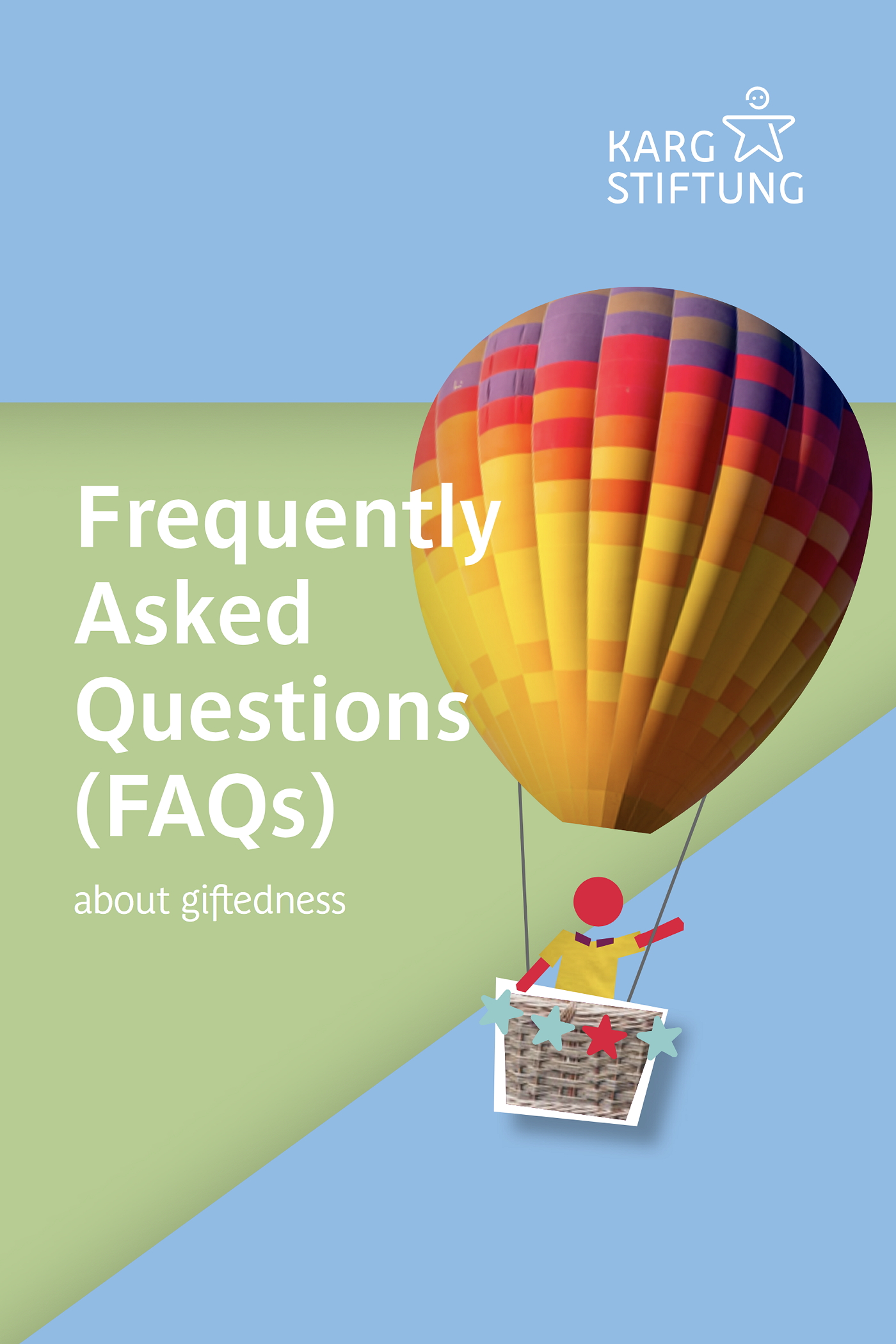Frequently Asked Questions (FAQs) about giftedness
How is giftedness recognized in school?
In school, giftedness may be reflected in a student’s high learning ability and motivation, in the fact that he or she is insufficiently challenged by the typical content and pace, and often but not always, in higher-than-average school performance. For children and adolescents to discover their own specific abilities, they need opportunities to demonstrate to themselves and others what they are good at and what they are capable of. Schools provide a suitable setting for this, as they offer a wide range of subjects and activities which can also help to compensate for differences in students’ backgrounds. However, their potential may not always lie in those areas that are encouraged and paid attention to at school.
It is therefore important to create opportunities at school for discovering, testing, and displaying such potential. This can be facilitated by offering children and adolescents spaces where they are not graded as well as tasks or activities that allow students to use different approaches and methods when working on them, which also provide challenges for the more interested and competent students. These kinds of settings should be provided on a regular basis because different abilities display different developmental timeframes, and both students and teachers first need to become familiar with these types of open-ended task formats and approaches to teaching and learning. In addition, abilities and talents often develop through encouragement, and sometimes giftedness only becomes apparent after a period of investment and support.
This is why, for the recognition of specific potential in school, it is particularly important to always think of identification and support together: Based on the assessment of a student’s preferences and abilities, further steps in learning and practice are specified and, after some time, the status of the student is reviewed and support is then adapted accordingly. It is important that teachers try to approach this process with an “open mind” and avoid making hasty judgments about which students are gifted in their classroom. To detach oneself from such impressions is not easy, but it is always a rewarding experience to anticipate outstanding potentials in each class and to allow oneself time and to be surprised every now and then. In addition, sharing information with colleagues about a student is particularly constructive, as giftedness may only be evident in isolated school subjects.

